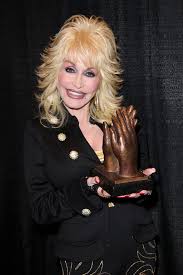My wife and I are not fans of Dolly Parton, the amazing country rock singer of diminutive stature but huge wig, huge voice and so on. Only the wigs are fake, we learned from a fascinating documentary we just saw on Netflix, which other reviewers are describing as routine in format, but interesting, nonetheless, because Parton is herself such a sympathetic figure: shrewd, warmhearted and scandal free.

We thoroughly enjoyed Dolly Parton: Here I Am and recommend it for its revealing interviews with the performer herself and professional associates, but with one caveat. There is absolutely no (zero, zip , nada) reference to Parton’s faith life. How huge an omission this is I leave to those more expert in her life story than me, but I knew she had one without ever having cared much for her music. A cursory search revealed that she claims to be a strong Christian but a private one. It also reveals in recent years she put out several faith-based albums, which led to several interviews on her faith. It isn’t something she pushes on anyone, she explains in these. Rather, in her songs she just describes what she believes. Her audience can take it or leave it.
Though her public persona has always been, in part, a parody of the dumb blond, her Christian faith has led her to a thoughtful and extensive commitment to literacy, especially among children, through her charity, “The Imagination Library.” Not so dumb, then.
The documentary takes us through Parton’s many genre shifts without even mentioning her latest one to religious songs. Almost hilariously, but also sadly, the filmmaker actually shows her singing lyrics from one of her religious hits “The Seeker.”
We hear her warble “I am the seeker/ You are the teacher” but not any of the other words indicating the song expresses a sinner’s yearning for God’s help. Instead, the script makes this about her early professional relationship with mentor and collaborator Country Western star Porter Wagoner. (He sued for millions when she quit his show, but this is left out of the movie too).
The inside journalism site GetReligion.org calls these omissions of significant religious content from the lives of sports and political personalities “religious ghosts.” I’m thinking “faithwashing.”
Is the motive antipathy to faith, or concern the topic will turn off the general audience? Willful blindness?
